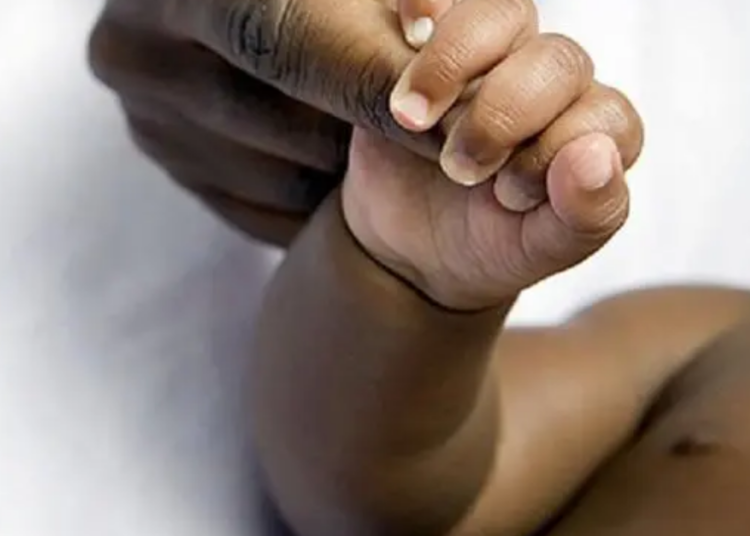Curiously, and in spite of efforts by security and other agencies of government to combat the onslaught of criminal- minded Nigerians with the devious intention to turn baby-making into a commercial enterprise, the disturbing trend still persists. This sinister, even if clandestine operation, which involves the exploitation of vulnerable women and the obnoxious commercialization of their babies born in such illicit and unhealthy arrangement, has continued to be condemned.
State and non-state actors are unanimous in their opinion that the act represents a grave violation of human rights and have put machinery in motion to check the unwholesome practice that has been classified as trafficking in human persons. The stubborn resistance of the elements perpetrating this criminality has defied reason and understanding.
It is against this backdrop that we, as a newspaper, are persuaded to shed light on the shame that baby factories are, explore and expose the underlying interests, and urge the government and civil society as a whole to take decisive action against this heinous crime.
Baby factories, often disguised as orphanages or maternity homes, are establishments where women are impregnated by paid sperm donors and forced to give birth for the purpose of selling their newborns. Some of these factories operate in secrecy while others carry on, openly, with the tacit connivance of some highly placed public officials who prey on desperate women facing socio-economic challenges, including poverty, unplanned pregnancies, and the stigma associated with single motherhood. The babies born in these factories are often sold to child traffickers, who profit from their sale, while the mothers are subjected to physical and psychological trauma thereafter.
The human toll of baby factories is immeasurable. Women are lured into these facilities with promises of financial assistance and a better life, only to find themselves trapped in a web of exploitation. They endure physical and emotional abuse, inadequate healthcare, and substandard living conditions. The psychological repercussions for these women are profound, as they are stripped of their dignity and the joy of raising their own children. Meanwhile, the infants are treated as commodities, their future at the mercy of unscrupulous individuals.
To effectively address the menace of baby factories, it is crucial to understand its root causes. Poverty, lack of education, desperation, gullibility and limited access to reproductive health services are significant factors that contribute to the perceived vulnerability of the women who get themselves enmeshed in this vicious cycle.
Similarly, corruption, weak law enforcement, and a lack of social support mechanism further perpetuate this criminal enterprise. Additionally, societal attitudes towards single motherhood and adoption often stigmatize and marginalize women, exacerbating their vulnerability and leaving them susceptible to exploitation.
The eradication of baby factories, in our considered opinion, requires a multi-faceted approach. First and foremost, the Nigerian government must strengthen legislation and law enforcement mechanisms to ensure that those involved in the establishment and operation of baby factories face severe legal consequences. Specialized task forces, comprising of law enforcement agencies, social workers, and healthcare professionals, should be established to investigate and dismantle these criminal networks. Efforts should also focus on raising public awareness, providing comprehensive sexual education, and promoting women’s empowerment and economic opportunities.
Given the transnational nature of child trafficking, addressing the menace of baby factories requires international collaboration. Nigeria should join forces with neighbouring countries and international organizations to enhance intelligence gathering and sharing, border control, and the repatriation of trafficked children. Foreign governments and international agencies should provide technical assistance, capacity building, and financial support to strengthen Nigeria’s anti-trafficking infrastructure and rehabilitate victims.
The existence of baby factories in Nigeria is a blot on the nation’s conscience. The exploitation of vulnerable women and the commodification of infants must be met with utmost condemnation and swift action. The Nigerian government has a crucial role to play in combating the menace of baby factories.
That the crime has continued to thrive is proof that existing laws are not stringent enough to control the trade in babies. To that extent, therefore, we appeal to the government to enact comprehensive legislation specifically targeting baby factories and child trafficking. This legislation should define these crimes, establish severe penalties for offenders, and provide a legal framework for investigations, prosecutions, and victim support. Existing laws should be reviewed and amended, if necessary, to ensure they adequately address this issue.
The government should also allocate resources to train law enforcement agencies on identifying and investigating baby factories where they exist. Specialised task forces should be established to focus on combating this crime.
In our candid opinion, the government should invest more in social welfare programmes that provide support to vulnerable women and families. This includes initiatives such as poverty alleviation programmes, access to quality education, vocational training, and reproductive health services. By empowering women and providing them with economic opportunities, the government can reduce their susceptibility to exploitation.
The government should also establish comprehensive rehabilitation and reintegration programmes for victims of baby factories. These programmes should prioritise the physical and psychological well-being of the survivors, providing them with medical care, counseling services, and skills training.





